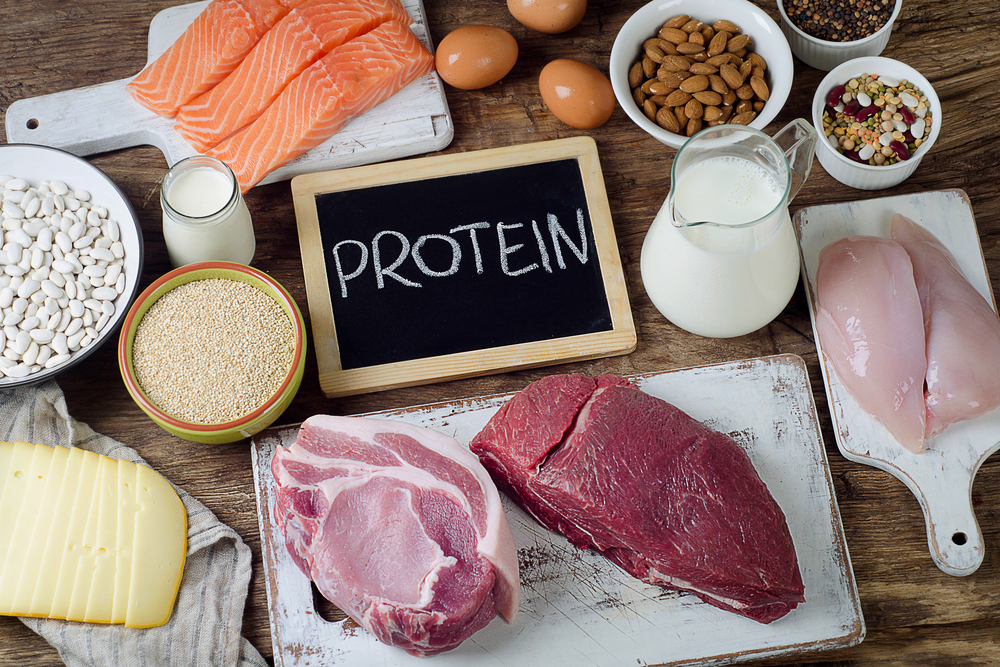Experts, including Karen from Amplify Nutrition, challenge current low RDA recommendations, and address the trendy cancer concerns

Protein is a crucial part of our diet, essential for maintaining muscle mass and overall health. Insufficient protein intake can lead to muscle loss, which has been linked to a higher risk of early death. Despite this, the Recommended Dietary Allowance (RDA) suggests just 0.8 grams of protein per kilogram (kg) of body weight, per day, (or an easier rough guide of 45g for females, 55g for males). Many experts, including me, believe this is too low.
I recommend consuming at least one to two grammes of protein per kg of body weight daily, depending upon age and goals – and yes, that’s a very wide range. For example, for those who are particularly active, or aiming to build muscle, higher levels might be appropriate. However, this raises an important question: can you eat too much protein?
The protein and cancer link
There’s a hypothesis that excessive protein consumption could increase cancer risk, largely due to its effects on certain cellular pathways which are the ones deeply involved in cell growth and proliferation.
Since uncontrolled cell growth is a hallmark of cancer, it’s suggested that high protein intake might contribute to cancer development – it certainly seems plausible at first glance.
What does the human data say?
Human studies do not support the idea that high protein intake increases cancer risk.
Conducting randomised trials on this topic is challenging and expensive, and animal studies often don’t translate well to humans.
Therefore, we rely on large-scale human epidemiology studies, which tend to discredit the hypothesis that high protein intake is linked to cancer.
A 2020 systematic review and meta-analysis of seven cohort studies found no significant difference in cancer risk between high and low protein intake groups. Another 2020 meta-analysis examining 12 prospective cohort studies also found no association between increased protein intake and cancer mortality.
Re-evaluating the evidence
One study often cited in support of the protein-cancer link was published in 2014 by Levine et al., which used data from the NHANES III health survey. They found that adults aged 50-65 with high protein diets were more likely to die of cancer than those with low protein diets. However, among adults over 65, high protein intake was associated with a lower risk of cancer mortality. This inconsistency suggests the data might be influenced by factors other than protein intake itself, such as overall health and lifestyle differences.
Cancer progression vs. development
It’s important to differentiate between the role of protein in cancer development vs. cancer progression. Even if protein levels do not initiate cancer, it might still influence existing cancer progression. Some studies in mice have suggested that protein restriction could inhibit tumour growth – but these results are inconsistent and not easily applicable to humans.
The role of protein in cancer survival
For individuals with cancer, adequate protein intake is crucial. Protein helps maintain muscle mass, which is often depleted during cancer and its treatment, leading to poorer quality of life and survival rates. Studies have shown that higher protein intake is associated with better outcomes for cancer patients. Current guidelines recommend increasing protein intake for cancer patients to improve their chances of survival.
Does it matter where you get it?
Some studies have investigated whether animal or plant protein has different effects on cancer risk. The evidence does not consistently show significant differences between these protein sources in terms of cancer risk. The real issue may be that diets high in red and processed meats are often low in essential nutrients and high in unhealthy components, rather than the meat itself causing cancer. It’s hard to know.
More is better than too little
The idea that high protein intake could increase cancer risk seems initially logical, but the evidence does not always support this. Instead, getting enough protein is vital for maintaining muscle mass and overall health. Most people do not consume enough protein, and the risks of too little protein – including increased frailty and poorer metabolic health – far outweigh the hypothetical risks of consuming too much. Therefore, it’s important to focus on meeting, if not exceeding, the recommended daily protein intake for optimal health and longevity.
Karen welcomes questions and queries via Amplify Nutrition for personal advice



